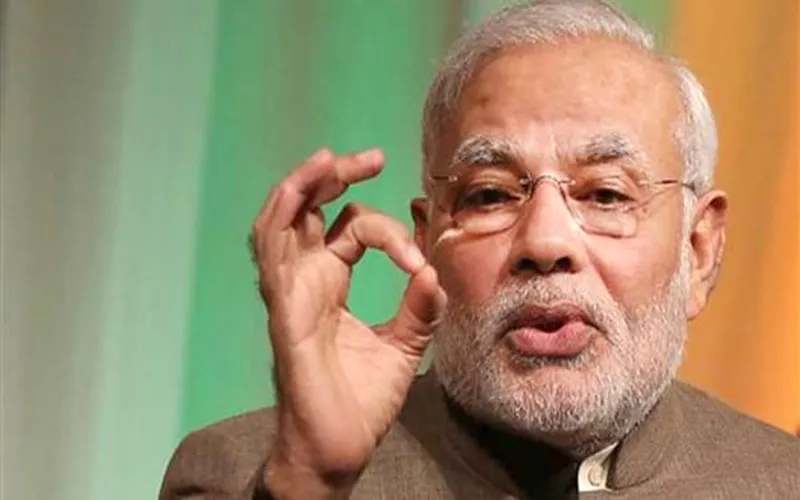Prime Minister Narendra Modi has much greater political space at home than his predecessor Manmohan Singh in making more confident moves towards China. If Singh was hobbled by the Congress party’s ambivalence towards China, the BJP has been far less inhibited. BJP leaders, hawkish in opposition towards China, tended to be pragmatic in their approach to Beijing when in power.
In democracies, rightwing parties that talk tough on national security don’t have to look over their shoulder in making bold foreign policy moves. They can also count on the support of left and liberal sections when they reach out to presumed national adversaries. If Modi generates new warmth in relations with China, many of his critics at home will find it hard not to clap.
Chinese takeaway
Congress leader Rajiv Gandhi certainly gets much credit for putting ties with China back on track in 1988, after they were derailed nearly three decades earlier under the first prime minister, Jawaharlal Nehru. Conventional wisdom, however, glosses over the fact that it was the BJP’s Atal Bihari Vajpayee, who served as India’s foreign minister in the Janata government led by Morarji Desai, who first extended the hand of friendship to China after Nehru. Vajpayee travelled to Beijing nearly a decade before Gandhi did. When he became the prime minister, Vajpayee surprised Beijing by citing the threat from China as the principal justification for his decision to conduct five nuclear tests in May 1998, less than two months after he was sworn in. But Vajpayee moved quickly to repair relations with China.
Vajpayee took the initiative to resolve the dispute with China over Sikkim. During his visit to China in 2003, Vajpayee persuaded Chinese leaders to begin a new political effort to settle the boundary question. The fruits from this endeavour fell into the UPA government’s lap two years later in the summer of 2005, in the form of an agreement on the guiding principles for the resolution of the boundary dispute.
Sweet and sour
The Congress leadership did not have the political will to push forward on the China relationship. The Congress always talked about friendship with China in grandiose terms. But it did not have the stomach to take the hard decisions on key issues in India’s China policy: settling the boundary dispute, deepening economic cooperation and competing vigorously with Beijing for strategic influence in Asia. The Congress leadership seemed paralysed by the fear of offending China and drew red lines for itself on the engagement with other nations, especially the United States and Japan. Modi appears to be turning this failed policy on its head.
Despite the deep resentment in the BJP against Washington’s decade-long denial of a visa to Modi, the PM has decided that the US must remain central to India’s foreign policy and signalled warmth towards Washington. Modi has also drawn close to Japan’s premier, Shinzo Abe, amidst deteriorating relations between Beijing and Tokyo.
Modi made bold to refer to China’s "expansionism" from Japanese soil. All this does not make Modi "anti-China" in any sense. Modi has made it quite clear that he will go a lot further than the Congress government in inviting Chinese investments into India. He might also be more open than the UPA government to various Chinese proposals to develop new silk roads — overland and maritime — between China and India. At the same time, Modi is determined to accelerate India’s military modernisation and strengthen its defences on the contested frontier along the Great Himalayas.
Modi’s sweet and sour policy towards China has not constrained his engagement with Beijing. His hardball diplomacy might actually have improved his standing with Chinese President Xi Jinping.
Modi, with Xi
If Modi is a strong leader who is bringing greater purposefulness to India’s China policy, Xi is even more powerful at home. He has conveyed a strong interest in transforming relations with New Delhi and is willing to explore opportunities with Modi.
Sceptics would dismiss such talk by pointing to the multiple challenges facing the bilateral relationship, from the boundary dispute to the trade deficit. They also point to the growing nationalism in both countries and the intensification of regional competition as real obstacles to substantive bilateral cooperation.
The engagement between Modi and Xi, then, is about the tension between the objective limitations and subjective possibilities in the India-China relationship. But political will, historians tell us, can often generate surprising outcomes.
(The writer is a Distinguished Fellow at Observer Research Foundation, Delhi and a Contributing Editor for ’The Indian Express’)
Courtesy : The Indian Express, September 10, 2014
The views expressed above belong to the author(s). ORF research and analyses now available on Telegram! Click here to access our curated content — blogs, longforms and interviews.




 PREV
PREV

